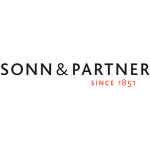The basic facts
Both parties are owners of registered EU trademarks consisting of the letters MK in different designs, with the additional wording "illumination". The plaintiff, an Austrian company has a business concerned with decorative illuminations in Austria and abroad. The defendant, a Czech company, is selling, lending, delivering and installing decorative illuminations and illuminated commercial signs. The defendant's EU registration is younger than that of the plaintiff.
The particular activity
The plaintiff, through a frontman, ordered some goods from the defendant who delivered them in one mailing to Austria. These goods, the bill and the packaging had a trademark in the design of the defendant. The defendant denied regular commercial activities in Austria and asserted that this mailing was its only delivery to Austria. In the infringement proceedings he rejected all the plaintiff's claims, especially the similarity of the marks due to their noticeable different designs, any repetition since it was only one delivery and the necessity to render accounts due to having already sent a detailed bill with the delivery of the goods.
Findings of the first and second instances
A partial judgement containing an injunction and an order to render accounts was delivered. A refusal of the request for publishing the decision and for destruction of the goods was issued. No publication was necessary since the infringing goods and means carrying the infringing mark were all in the hands of the plaintiff with no danger of illicitly being disseminated in the market. The decision on damages was delayed until the rendering of accounts. An interim injunction was ordered until the end of the infringement procedure.
The defendant partially appealed further to the Austrian Supreme Court which rejected the appeal for the following reasons:
1) The signs are confusingly similar. The letters MK are predominant. Although the different design elements are clearly visible, consumers will still think that these goods originate from the same enterprise due to the same letters MK. They will consider the different signs only as derivations or modernisations of the same mark, especially since the goods are practically identical.
2) The danger of repetition exists which requires an injunction. There was only one delivery upon request up to now but there is no certainty that the defendant has changed his mind and will not repeat such deliveries. Indeed the fact that he sticks to the idea that the marks are distinctly different is a sign to the contrary.
3) Rendering of accounts was upheld. This is the most important part of the decision. It is standard case law that such a request is to be rejected in cases where the plaintiff already has all necessary information. A bill alone, however, might not be sufficient information. Precedents allow principally an inspection of the original bills regarding the acquiring of the goods and their further sales. Only the production of these originals to a court expert allows the examination of the rightfulness and completeness of the rendering of accounts. Since here it could be that the plaintiff is at this time, through this one bill, not in possession of all necessary information, the request for rendering accounts is principally granted. The further proceeding of the rendering of accounts will clarify what original documents are still necessary for completeness.
Rendering of accounts is nearly always granted in cases of infringement of intellectual property rights and leads to the laying open of all relevant documents, including the names and addresses of the defendant's suppliers.

|
Helmut Sonn |
SONN & PARTNER Patentanwälte
Riemergasse 14
A-1010 Vienna, Austria
Tel: +43 1 512 84 05
Fax: +43 1 512 98 05











